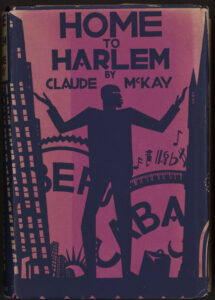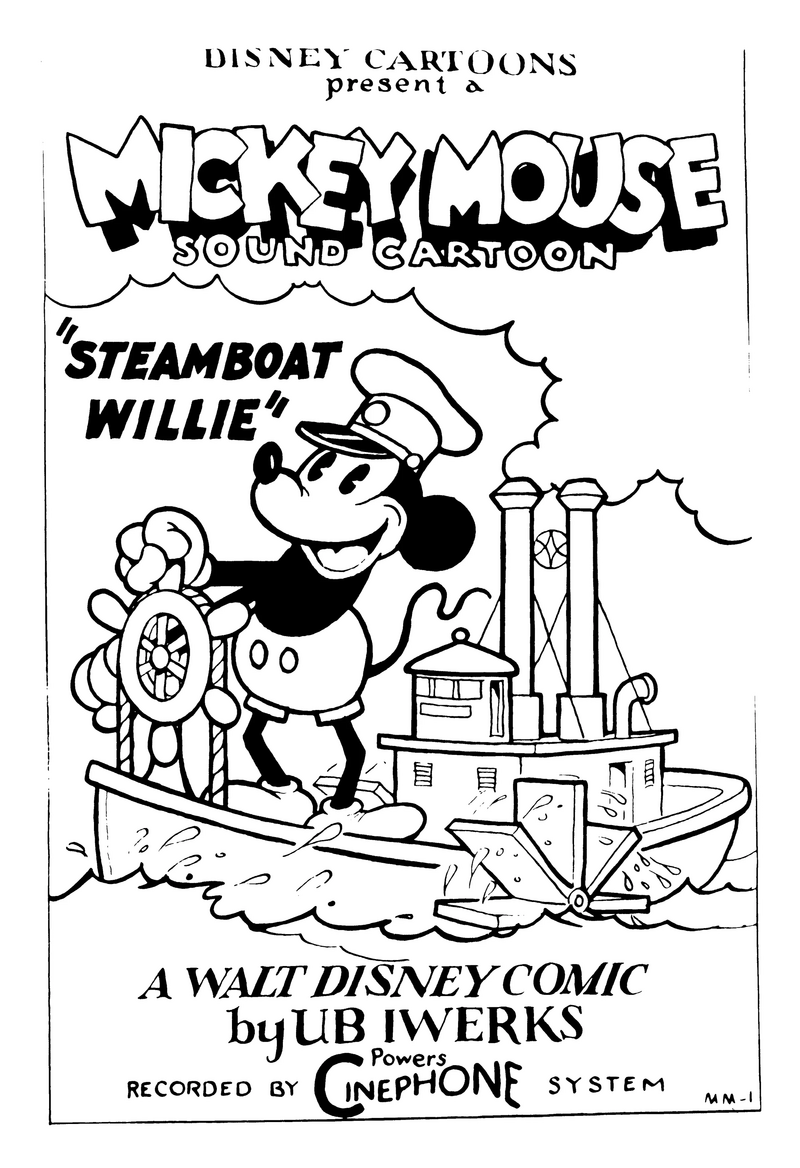Every year, on January 1st, works previously protected by copyright enter the public domain in the United States and are free for everyone.
On January 1, 2024, thousands of copyrighted works from 1928 entered the public domain in the United States, along with sound recordings from 1923. Works in the public domain are free for all to copy, share, and build upon. Among this year’s highlights are works that showcase cultural struggles of the early 20th century, many of which seem decidedly relevant today: there are books that were banned for obscenity (such as D. H. Lawrence’s Lady Chatterley’s Lover), a critique of the inhumanity of capitalist society (Bertolt Brecht’s The Threepenny Opera), a feminist classic exploring gender fluidity and sexuality (Virginia Woolf’s Orlando), and the first novel by a Black author to reach the New York Times bestseller list (Claude McKay’s Home to Harlem). Films that entered the public domain this month include some of the last silent pictures as well as the first “all-talking” picture. Perhaps the most hotly anticipated entry into the public domain is Walt Disney’s Steamboat Willie, featuring Mickey and Minnie Mouse. (For a fuller account of Mickey’s circuitous path out of copyright and ongoing legal limitations, see this account from Duke’s Center for the Study of the Public Domain.)
As Justice Kagan explained last year in her dissent in Warhol v. Goldsmith, “. . . artists don’t create all on their own; they cannot do what they do without borrowing from or otherwise making use of the work of others. That is the way artistry of all kinds—visual, musical, literary—happens (as it is the way knowledge and invention generally develop).” With this new cache of iconic works from a previous era entering the public domain, creators are free to borrow from them, or to reinvent them altogether, to confront the cultural challenges of our own time.
Books and plays
Here are just a few of the beloved and classic books that entered the public domain in 2024.
- D. H. Lawrence, Lady Chatterley’s Lover
- Bertolt Brecht, The Threepenny Opera (in the original German, Die Dreigroschenoper)
- Virginia Woolf, Orlando
- Erich Maria Remarque, All Quiet on the Western Front (in the original German, Im Westen nichts Neues)
- W. E. B. Du Bois, Dark Princess
- Claude McKay, Home to Harlem
- A. A. Milne, illustrations by E. H. Shepard, House at Pooh Corner (introducing the Tigger character)
- J. M. Barrie, Peter Pan; or the Boy Who Wouldn’t Grow Up (because the play’s script was not “published” for copyright purposes until 1928; note that Barrie’s 1911 novel Peter and Wendy has been public domain since 1967)
- Evelyn Waugh, Decline and Fall
- Wanda Gág, Millions of Cats
- Robert Frost, West-Running Brook
Films
The year 1928 was pivotal in the history of film. Part of the transitional period from silent films to “talkies,” it brought us both some of the last great silent pictures and the “first ‘all-talking’ picture.” Here is a selection of classic films that entered the public domain in 2024.
- Steamboat Willie and Plane Crazy (the silent version) (directed by Walt Disney and Ub Iwerks)
- The Cameraman (directed by Edward Sedgwick and Buster Keaton)
- Lights of New York (directed by Bryan Foy; billed as “the first ‘all-talking’ picture”)
- The Circus (directed by Charlie Chaplin)
- The Singing Fool (directed by Lloyd Bacon; follow-up to The Jazz Singer)
- Speedy (directed by Ted Wilde; Harold Lloyd’s last silent theatrical release)
- The Man Who Laughs (directed by Paul Leni; features a character who inspired the appearance of the Joker from Batman)
- The Wedding March (directed by Erich von Stroheim)
- The Crowd (directed by King Vidor)
- The Last Command (directed by Josef von Sternberg; Emil Jannings won the first Academy Award for Best Actor)
- Street Angel (directed by Frank Borzage; Janet Gaynor won the first Academy Award for Best Actress)
Sound recordings (from 1923)
This year, the Library of Congress will make all of the 1923 recordings in its collection available for download from its site (Library of Congress National Jukebox). Here is a sample of the recordings now in the public domain.
- Charleston (recorded by James P. Johnson)
- Yes! We Have No Bananas (recorded by Billy Jones; Furman and Nash; Eddie Cantor; Belle Baker; The Lanin Orchestra)
- Who’s Sorry Now (recorded by Lewis James; The Happy Six; the Original Memphis Five)
- Down Hearted Blues (recorded by Bessie Smith; Tennessee Ten)
- Down South Blues (recorded by Hannah Sylvester; The Virginians)
- Wolverine Blues (recorded by the Benson Orchestra of Chicago)
- Tin Roof Blues (recorded by the New Orleans Rhythm Kings)
- Dipper Mouth Blues and Froggie More (recorded by King Oliver’s Creole Jazz Band, featuring Louis Armstrong)
- Swingin’ Down the Lane (recorded by the Isham Jones Orchestra; The Shannon Four; The Columbians)
The majority of works from 1928 are out of circulation, but now that they are in the public domain, anyone can make them available to the public. This enables access to our cultural heritage—access to materials that might otherwise be forgotten. Many cultural gems are waiting to be rediscovered.
This post was adapted by Emory Libraries’ Copyright and Scholarly Communications Librarian John Morgenstern from Public Domain Day 2024 (licensed CC BY 4.0) by Jennifer Jenkins, director of the Center for the Study of the Public Domain, Duke University School of Law.


